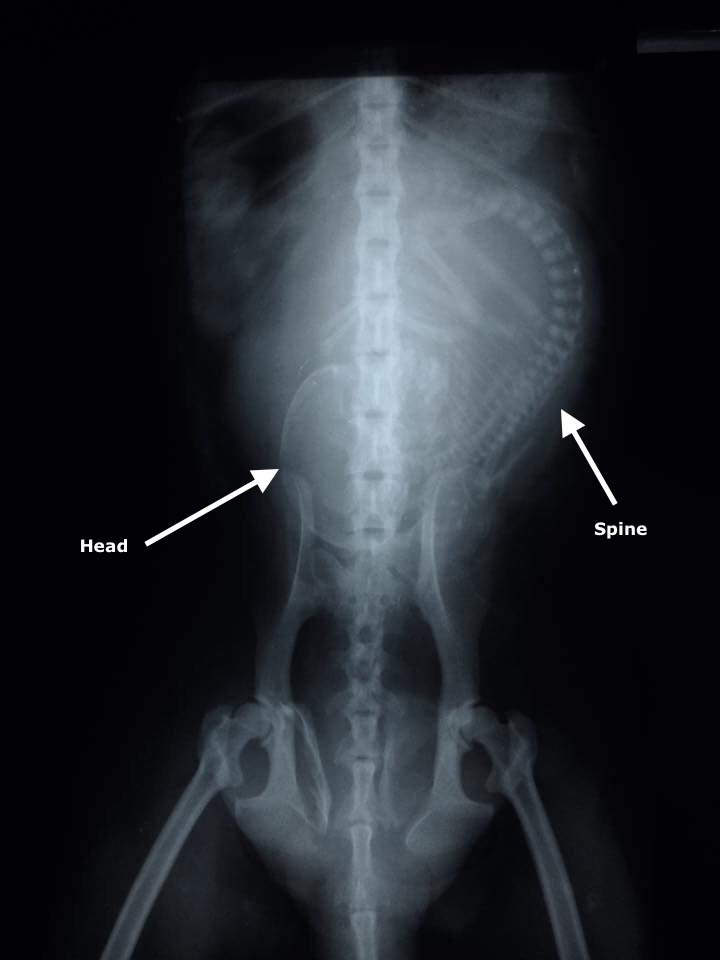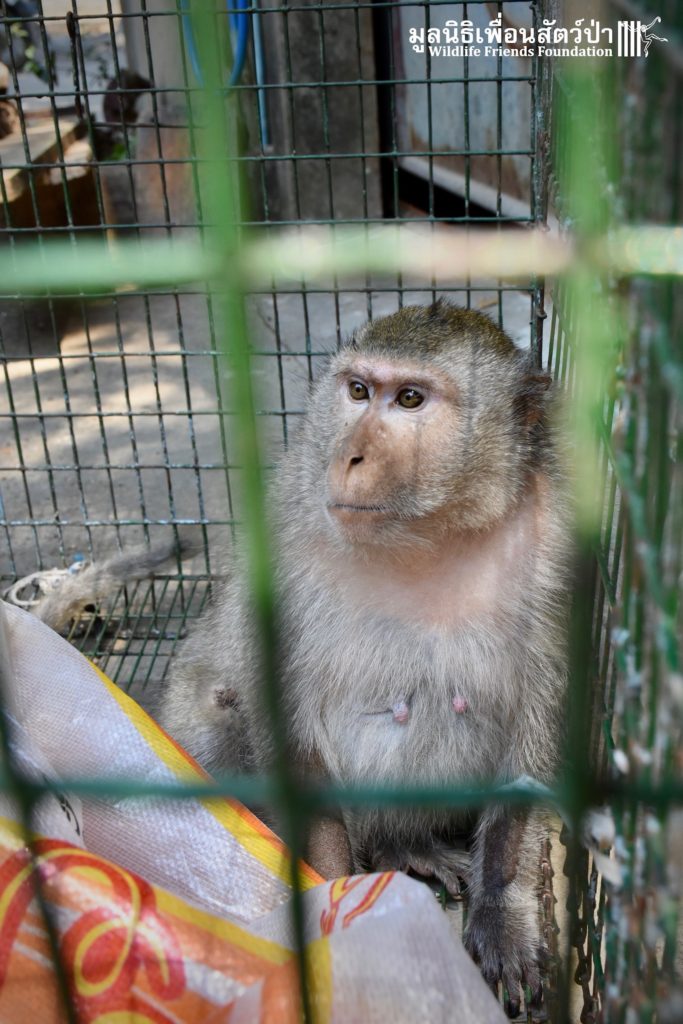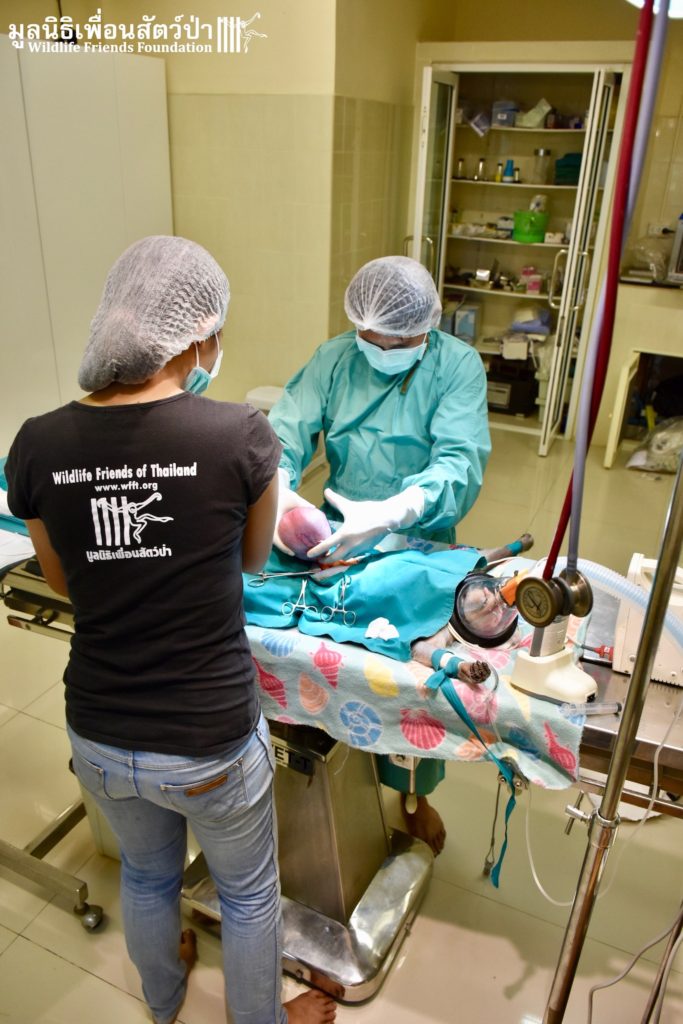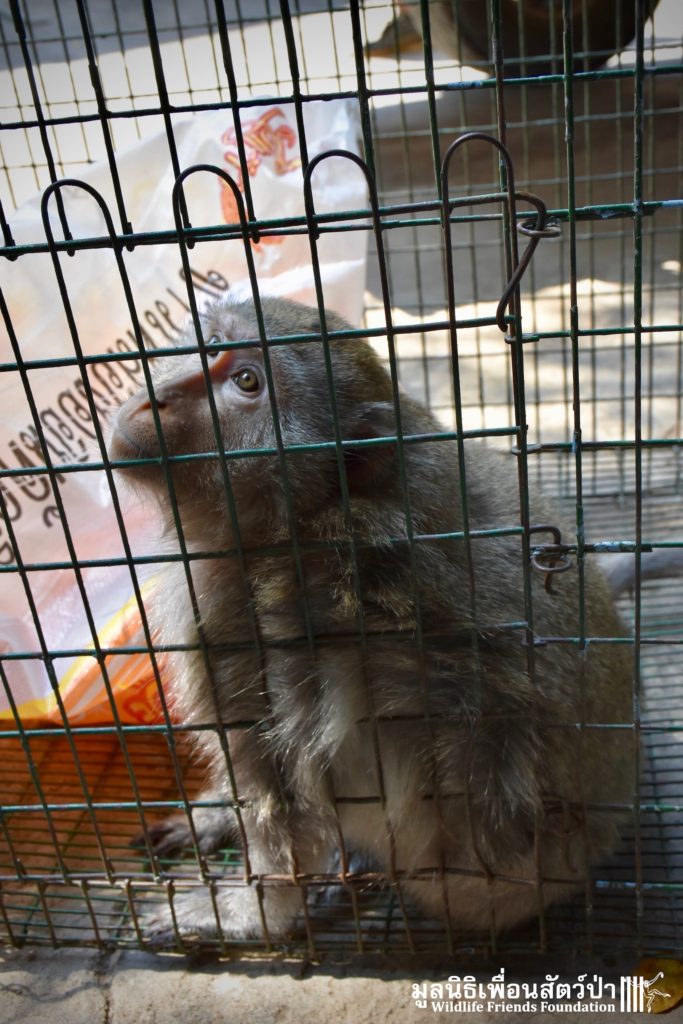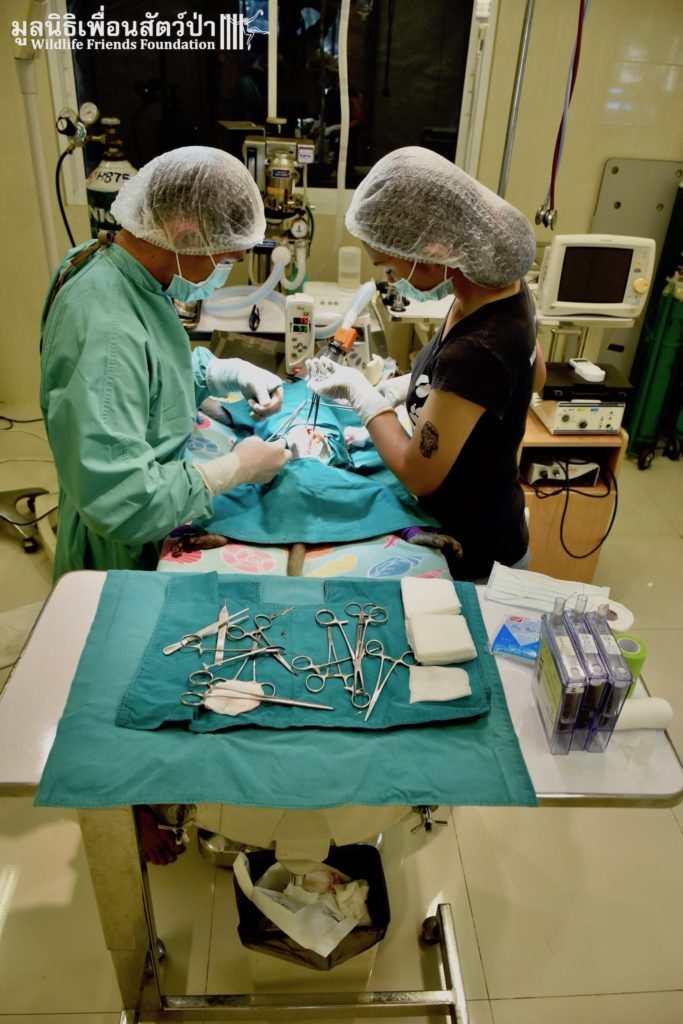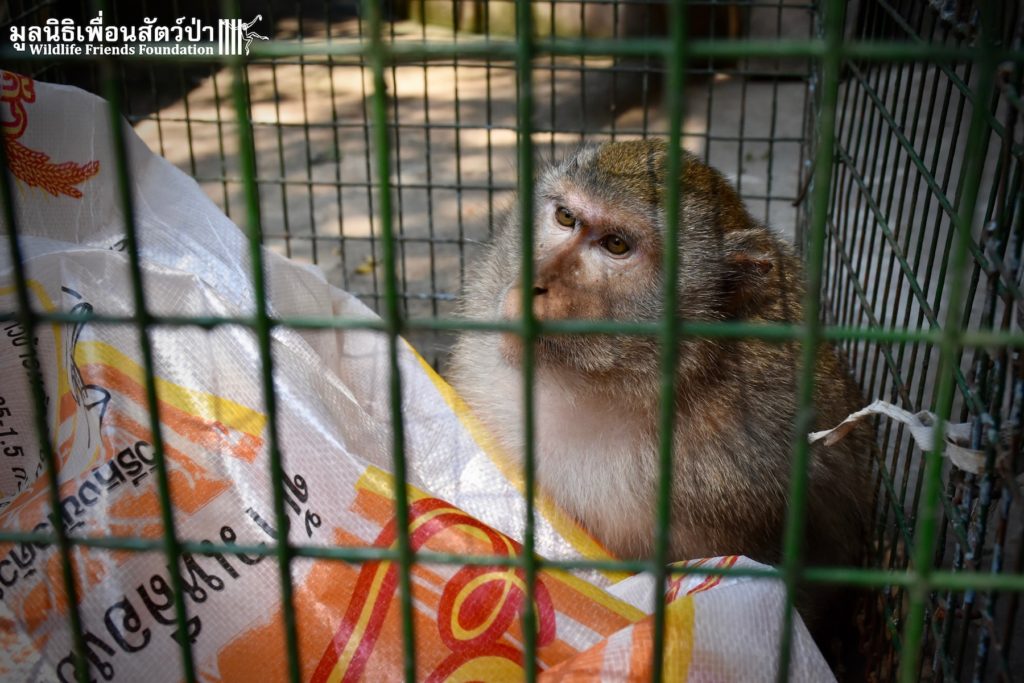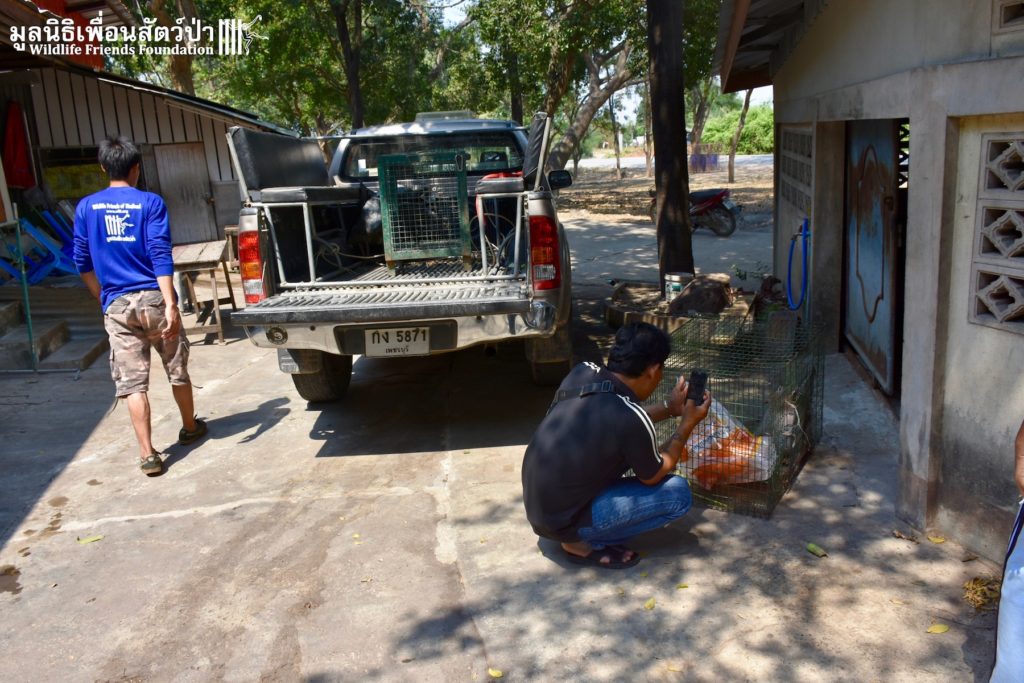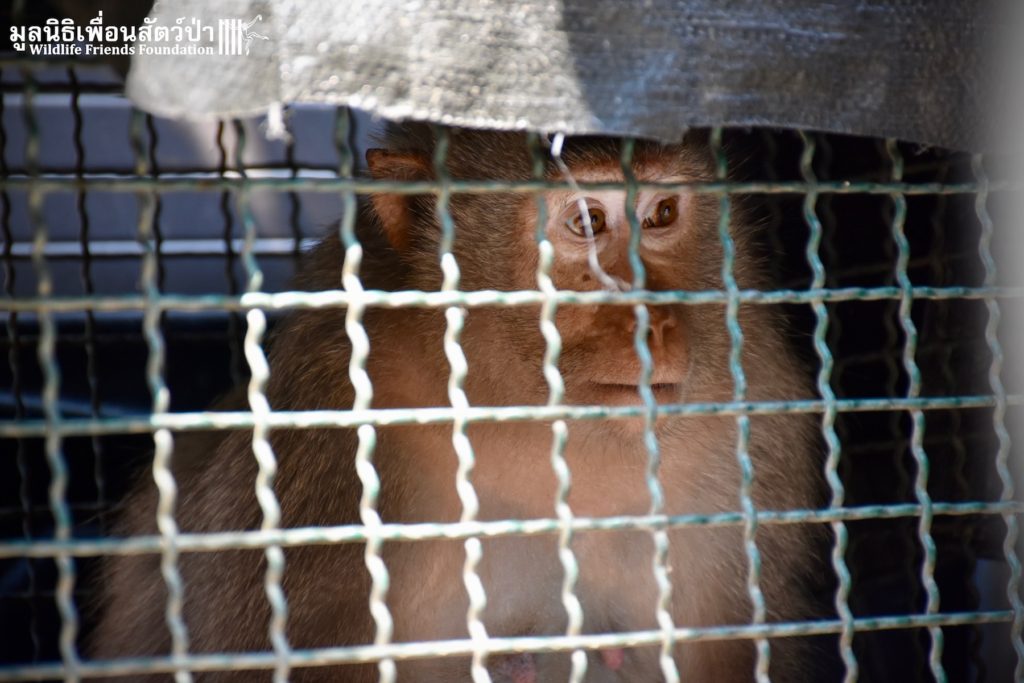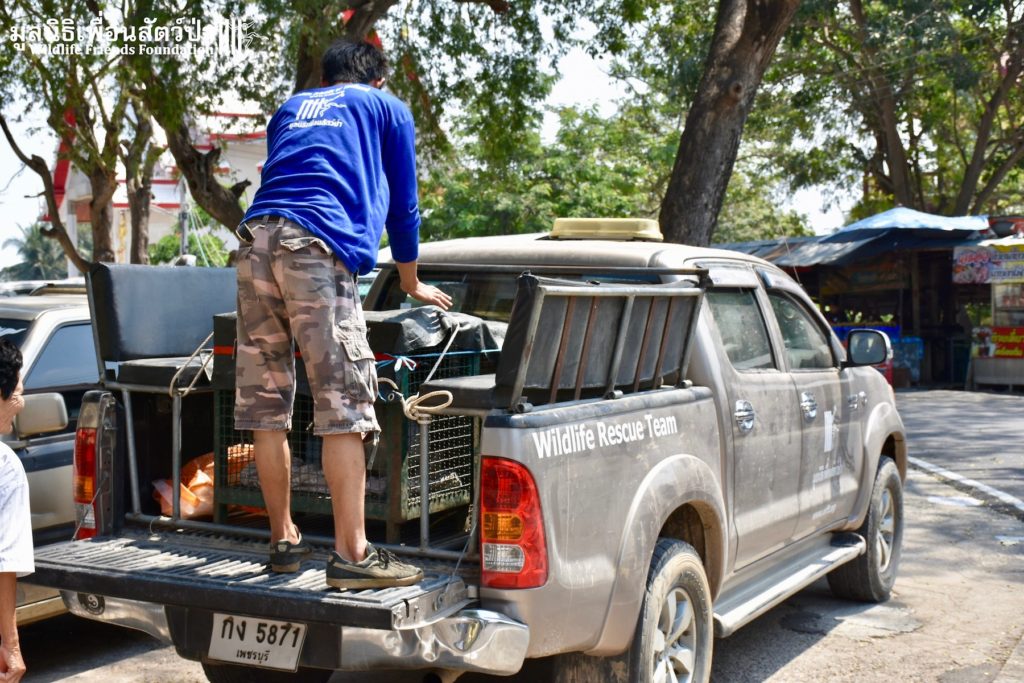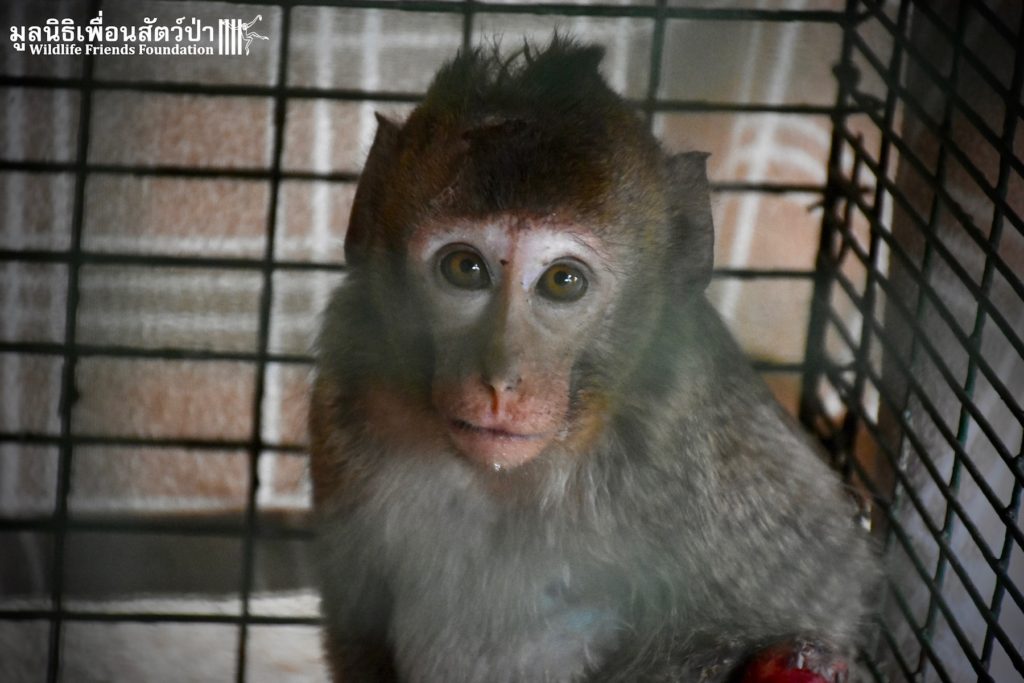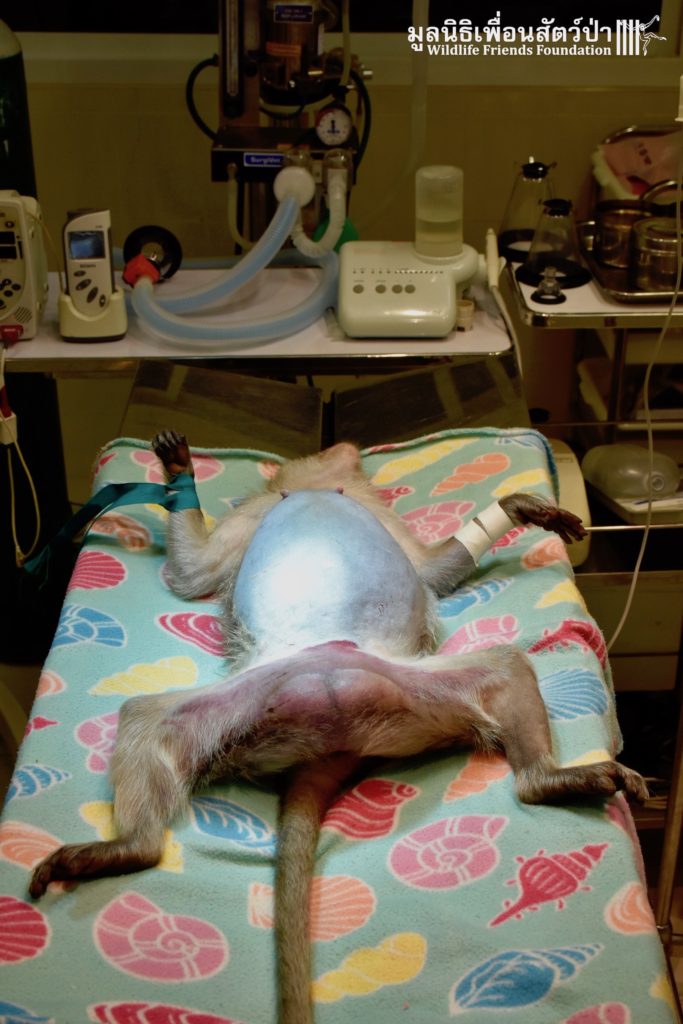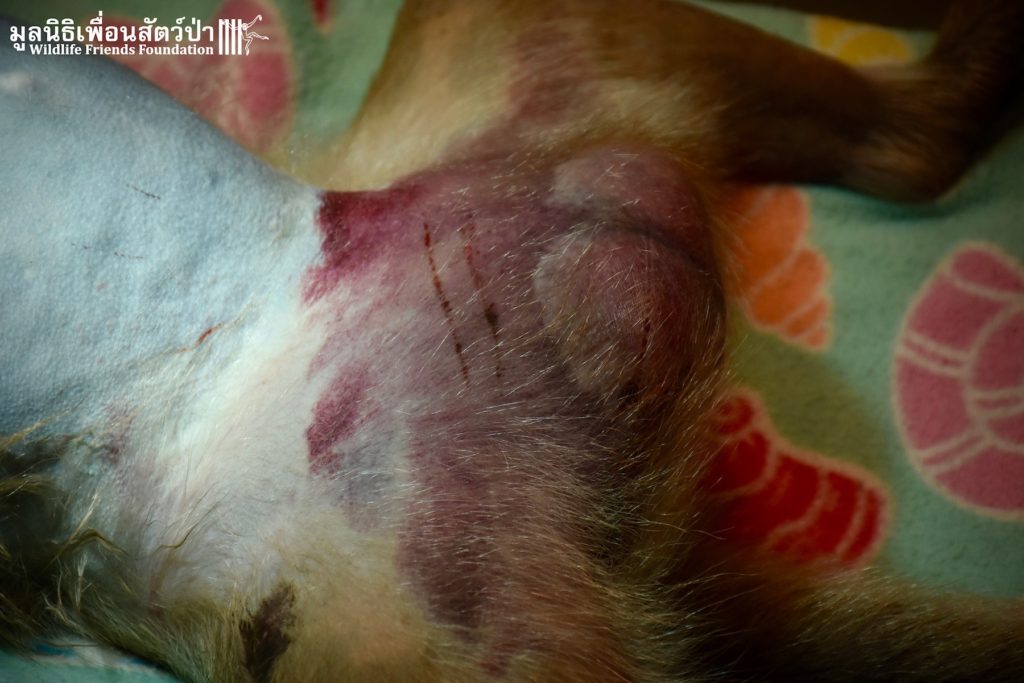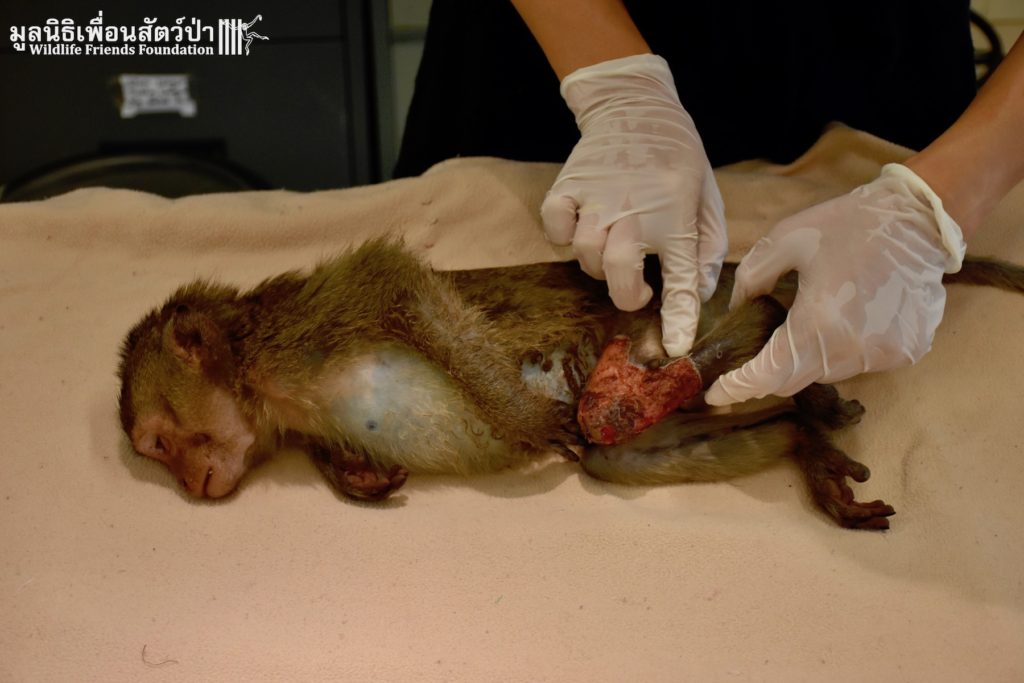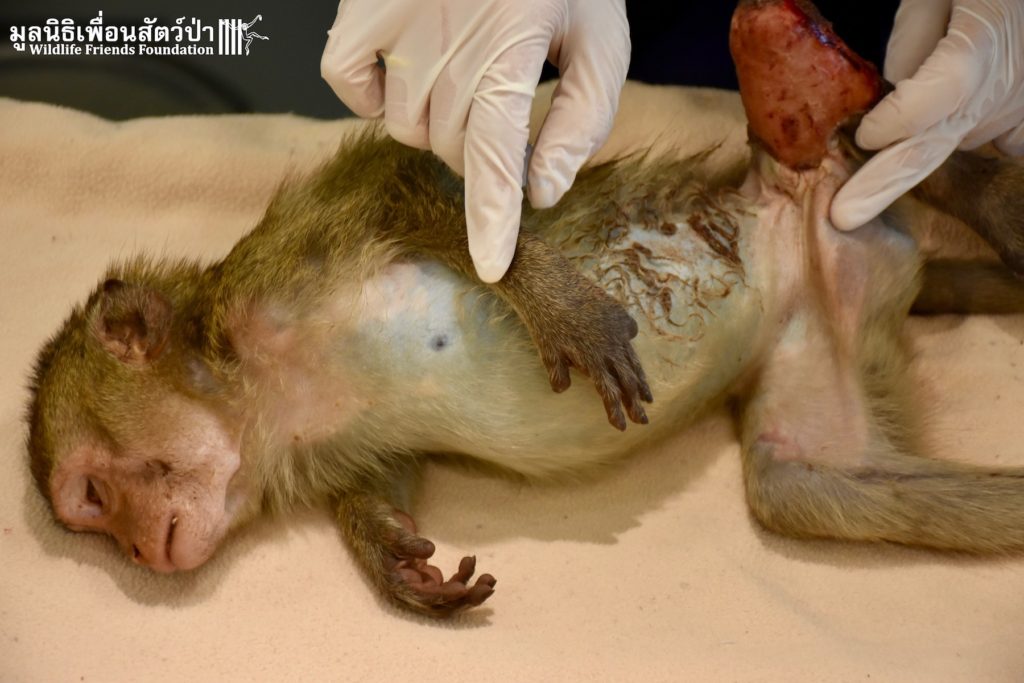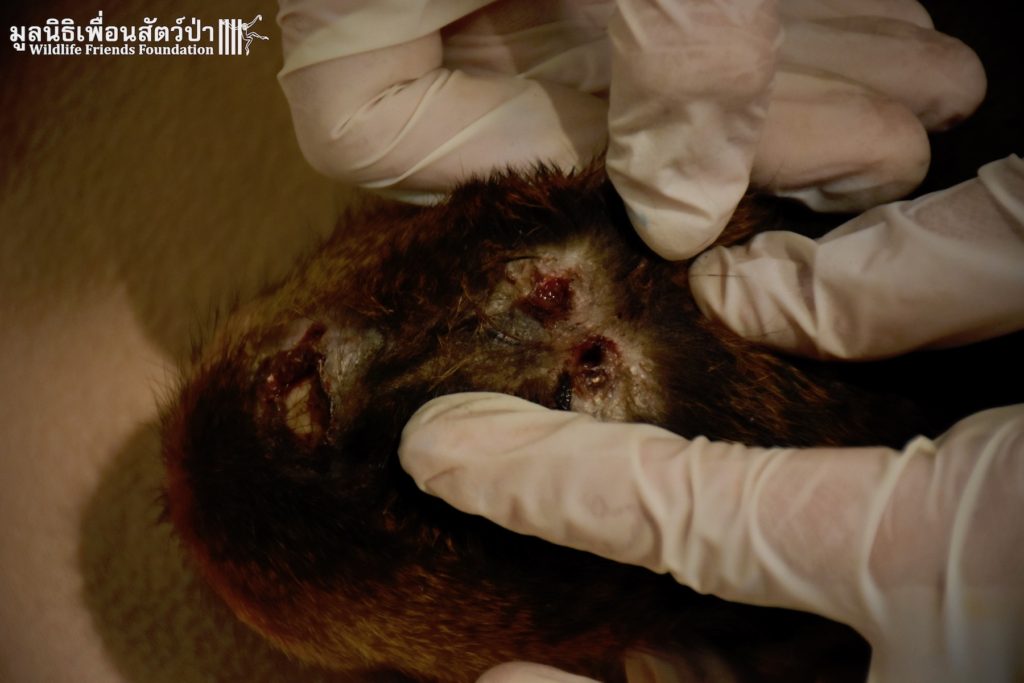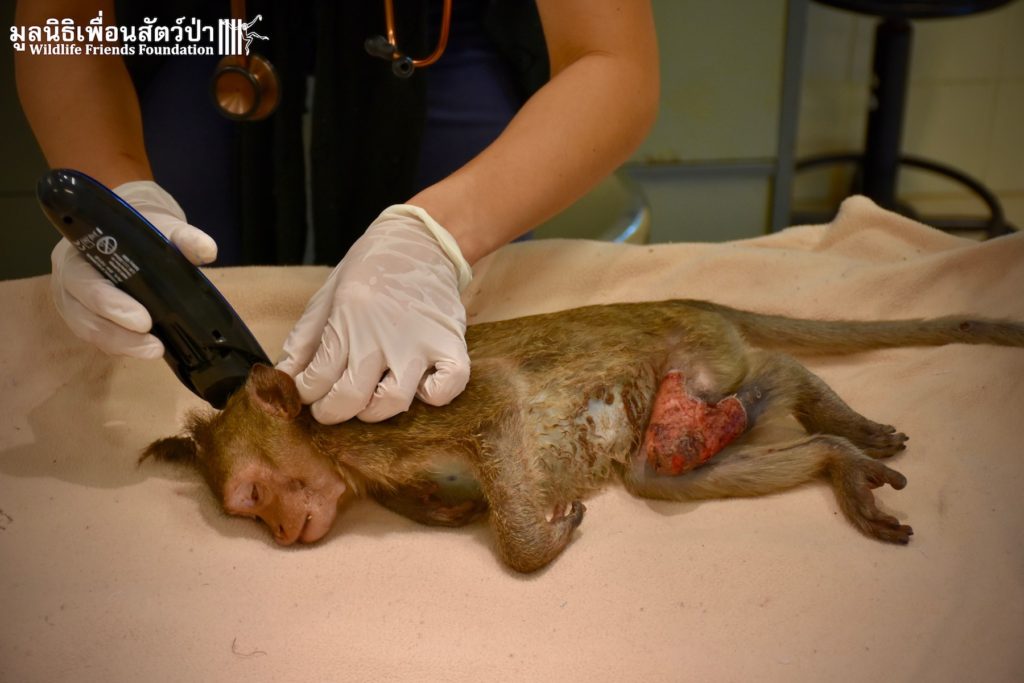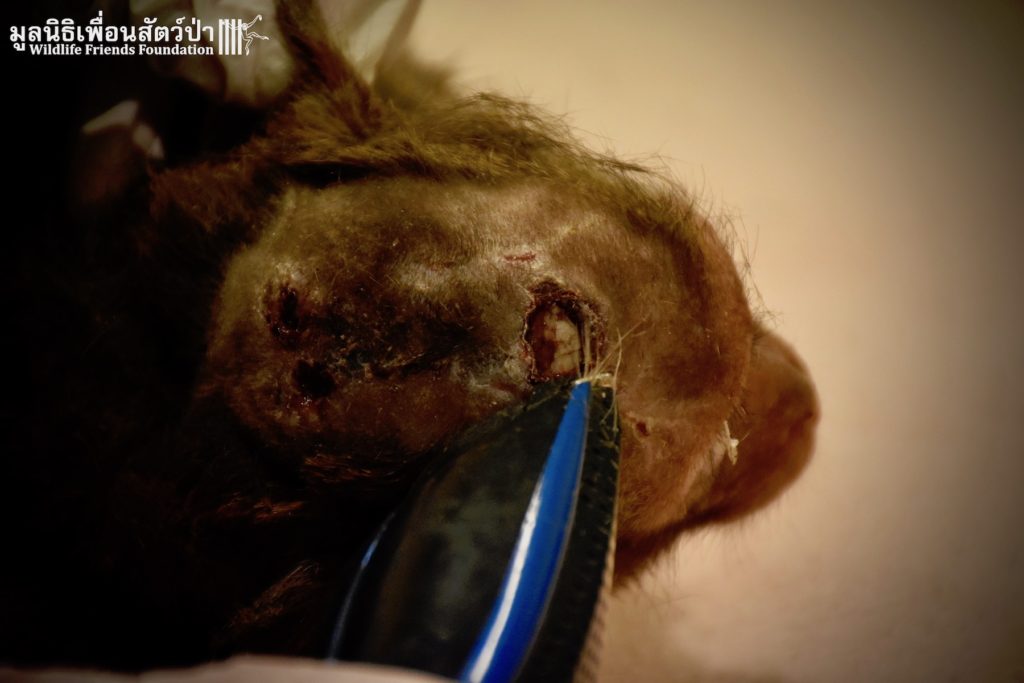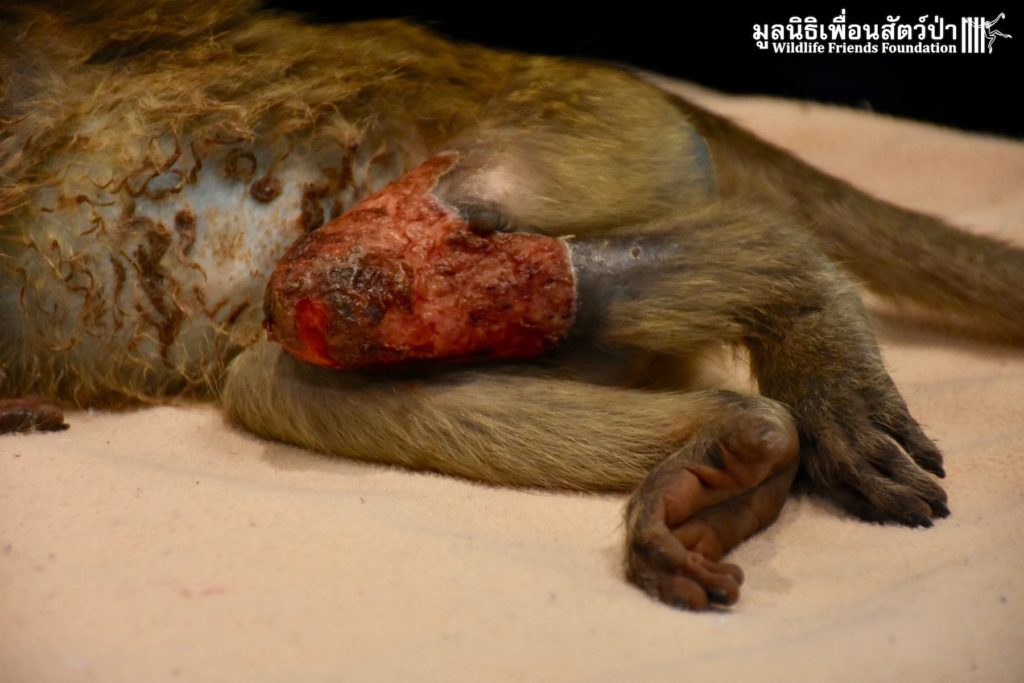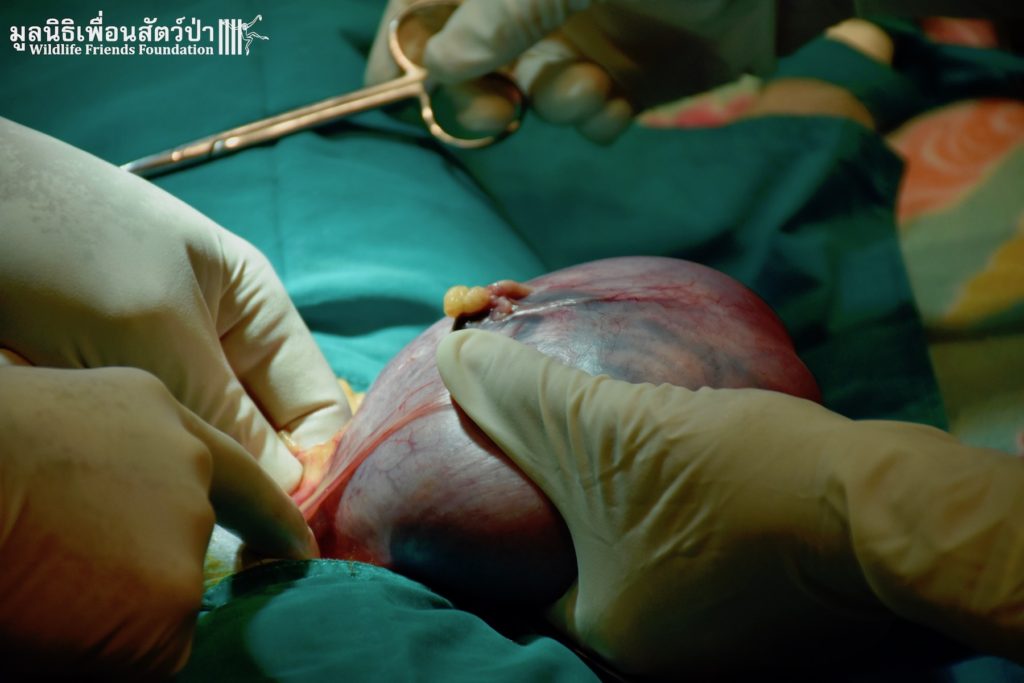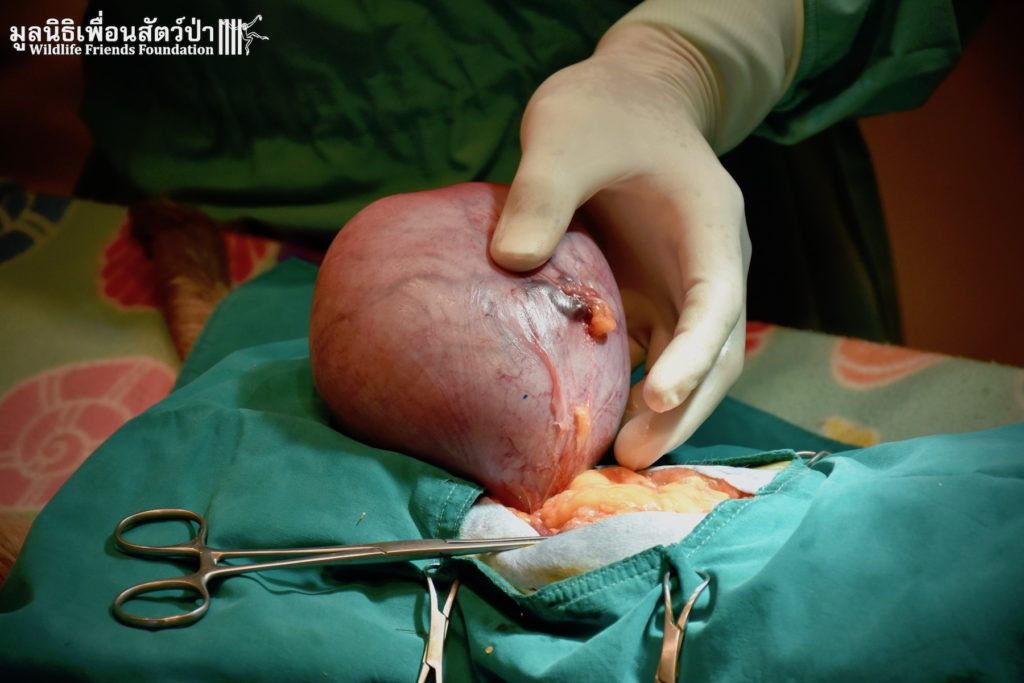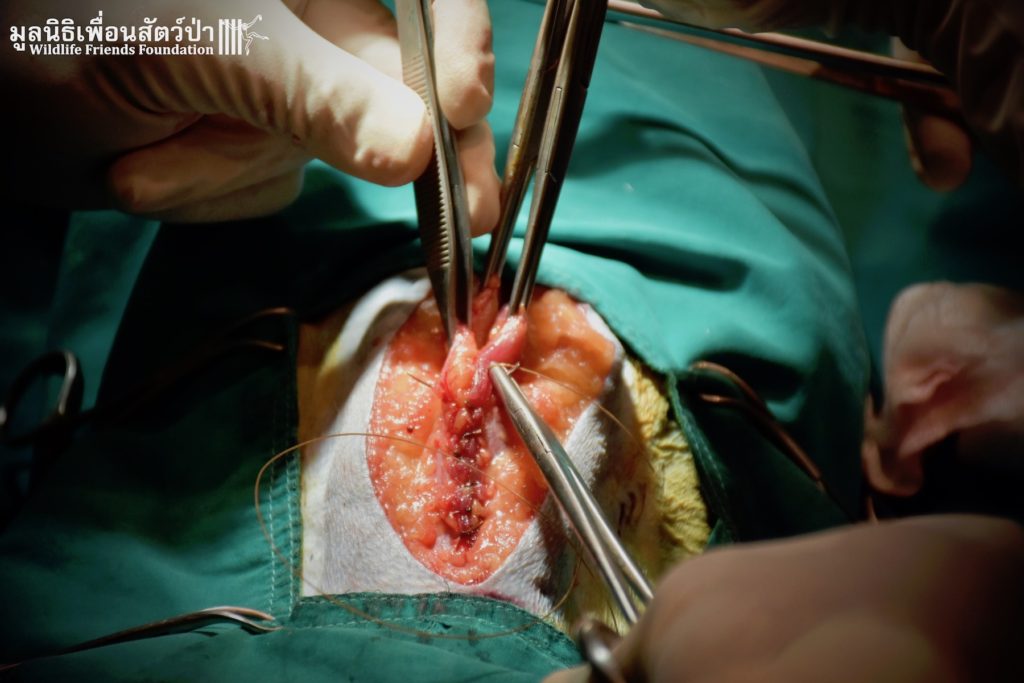After three weeks of dedicated care at the WFFT wildlife hospital, Wang, a wild long-tailed macaque from a local temple, successfully recuperated and was released back to his habitat.
2 Monkeys Arrive for Emergency Surgery.
Yesterday we received a report of a badly injured adult female long-tailed macaque (Macaca fascicularis) that was in need of rescue at a Buddhist temple around 1-hour drive from the WFFT Wildlife Rescue Centre. The WFFT Wildlife Rescue Team headed out straight away to help this monkey. Upon arrival to the scene they learned that she had been found lying on the ground since the day before, unable to move and was refusing to take any food or water. After the initial health check it seemed like she had a fractured pelvis so the team took her straight for an x-ray to assess the severity of her injuries. The x-ray indeed revealed that she has a broken pelvis, the team were saddened to find that she was carrying a dead unborn baby which, from x-ray appeared to have a fractured skull. We are unable to ascertain why her baby was dead, it is possible that she had been hit by a car or come into some kind of human-wildlife conflict incident. While the team were getting ready to head back to WFFT they were alerted by another macaque in need, a juvenile female that had been electrocuted then attacked by dogs the previous day. They went to investigate and found that she has sustained terrible burn injures to her legs and has puncture wounds in her skull from the dog attack. Both were transported to the WFFT Wildlife Hospital for urgent treatment.
The long-tailed macaque is listed as Least Concern (LC) by the IUCN Red list of Threatened Species, in view of its wide distribution, presumed large population, tolerance of a broad range of habitats, occurrence in a number of protected areas. Habitat loss and degradation due to human encroachment, pose the biggest threat to all macaque species. They are regularly persecuted as pests. Increasing competition between macaques and humans due the increase in need of land for agriculture and other human activities is the foremost reason that macaques are persecuted as pests. Hostile encounters with macaques are common in urban areas due to the active promotion of their presence for spiritual and entertainment purposes by provisioning food for the macaques. We (humans) both promote population growth through the provision of food and the protection habitat, and on the other hand we hinder it through the continued fragmentation of habitat, capture and exportation for research, and the pet-trade.
Upon arrival back to WFFT two teams worked to save the lives of these macaques. The adult female was taken straight to surgery were her unborn baby was removed. The juvenile was sedated so her wounds could be assessed further and tended to. The adult female is currently in a stable condition but has a long way to go if she is to make a full recovery. The juvenile female seems to be recovering well and has a good appetite. We hope they both recover from their terrible ordeals. We will keep you posted on their progress.

